People - GLOBE Observer
This is the second of a series of profiles highlighting the accomplishments of NASA's 2019 Summer Interns.
What did you work on this summer?
I worked primarily with cloud observations from GLOBE data this summer. I implemented a quality assurance system to automate quality flagging, and developed general-purpose Python code to make working with GLOBE data simpler for future projects. I also compared GLOBE observations of cloud cover to modeled output from the Goddard Earth Observing System (GEOS) numerical weather prediction model (NWP) and satellite-derived cloud cover from Aqua, Terra, and geostationary satellites with the goal of improving data collection for GLOBE and cloud parameterization in GEOS.
What did you learn from the GLOBE Observer data?
Some of the key findings using GLOBE data follow:
● Obscuration is a very complicated topic. Citizen scientists frequently report overcast skies as obscured. I have discussed rewording some of the questions in the Observer app with members of the GLOBE team.
● GEOS, when compared to GLOBE, shows no clear geographic bias in total cloud cover except where there are GLOBE schools. GLOBE schools often send numerous reports of clear skies erroneously. These observations are difficult to filter out objectively.
What have you studied, and how has your education prepared you for this position?
I graduated in May from the University of South Alabama (USA) with a Bachelor’s in Meteorology. I also spent last summer on an undergraduate research project with a professor at USA, where I used the Weather Research and Forecasting (WRF) NWP to simulate a severe windstorm from 1998. That research has been presented at three poster sessions (one symposium associated with the grantor, one student-run conference, and one professional conference) prior to the end of my internship here at NASA.
Any advice to younger students that would like to pursue internship at NASA?
For anyone considering a NASA internship:
● Go for it. I didn’t do many extracurricular activities prior to that, which is something I regret; the best advice I can give is to pursue every internship (or volunteership) opportunity that interests you as early as possible. The worst that happens is that you do not get accepted.
● You’ll note that I am an atmospheric scientist; I did consider opportunities with NOAA, but ultimately took an opportunity with NASA instead. You don’t have to be invested in only space travel and aeronautics to be an intern at NASA.
Parting thoughts on your summer at NASA?
If you get an internship, talk with your mentor as soon as possible to work out logistics.
Important questions you should ask before you even begin an internship are:
● When and where will I be working?
● What hours will I be expected to be present?
● What meetings will I be expected to attend?
● What computer will I be using?
● What software will I need?
● What deliverables do I need to produce - poster, methods report, oral presentations, code repository?








